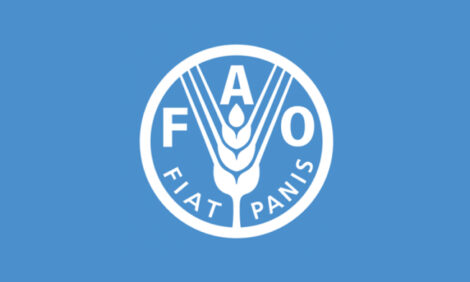



Risk Management Tools Offered To Dairy Farmers
US - Dairy farmers of all sizes will benefit from the risk management opportunities featured in the Foundation for the Future (FFTF) dairy policy programme, designed by the National Milk Producers Federation (NMPF), and drafted into legislative form by Rep. Collin Peterson.
In particular, the Dairy Producer Margin Protection Programme (DPMPP) presents farmers with the opportunity to proactively insure up to 90 per cent of their milk production against catastrophically low margins, due either to low milk prices, high feed costs, or the combination.
Because the financial stability of dairy operations increasingly depends on operating margins, rather than milk prices, giving farmers a way to protect their operation’s equity when margins are tight is a huge improvement over the status quo government safety net programs, which are solely focused on milk prices, according to NMPF.
“It’s always being said that farmers are price takers, not price makers, but under this new safety net, dairy producers will have the option of making a smart investment to prepare for the type of worst-case scenario like what we experienced in 2009,” said Doug Nuttelman, a dairy farmer from Stromsburg, NE, and a member of the NMPF task force that developed the DPMPP.
Mr Nuttelman explained that the DPMPP offers a Basic level of margin insurance at no cost to producers; all they will have to do is sign up for it, once the Foundation for the Future programme is implemented. Under the congressional draft, 75 per cent of a farm’s milk production history will automatically be eligible for protection at four dollars per hundredweight margin (defined as the gap between the all-milk price, and a national average of feed costs).
But the real opportunity for farmers to manage risk comes under the Supplemental option of the DPMPP, according to Nuttelman, because up to 90 per cent of a farm’s production history can be insured in increments up to an additional four dollars/cwt. The cost of this optional, additional insurance will be shared between the USDA, and producers who elect for Supplemental coverage.
“This gives farms of all sizes the chance to indemnify themselves at a level up to eight dollars per hundredweight, meaning that if the milk price is $14, and feed costs are above six dollars per hundred, the insurance programme will pay them the difference between the actual margin and eight dollars on almost all of their production that particular month."
"Or, if milk prices are $20, and feed costs are above $12, they’ll get paid,” Mr Nuttelman said.
If producers don’t want that level of protection, the Supplemental programme offers a sliding scale of options, in 50 cent per hundredweight increments.
And the real attractiveness of this programme to smaller-scale operators is that “the margin insurance programme allows for risk management regardless of whether you produce 100,000 pounds of milk per month, or one million,” he said.
“Many other types of private risk management tools require a minimum volume of milk in order to enter into a contract. But the DPMPP is open to everyone, large or small. This brings a new degree of protection to even the smallest dairies,” Mr Nuttelman said.
He also noted that the DPMPP is compatible with other risk management programs already in use, such as forward contracts. That type of program allows farmers to lock in a future price that may be attractive and profitable to them, whereas the DPMPP allows producers to insure against an unattractive scenario where poor margins may bleed away their equity.
For Mr Nuttelman, whose multi-generational Nebraska farm involves two sons, having insurance against equity loss “would make it easier for us to sit down with the banker, because if he sees that we are protected against the downside, both he and I can invest more confidently in the future of our farm.”
TheCattleSite News Desk


